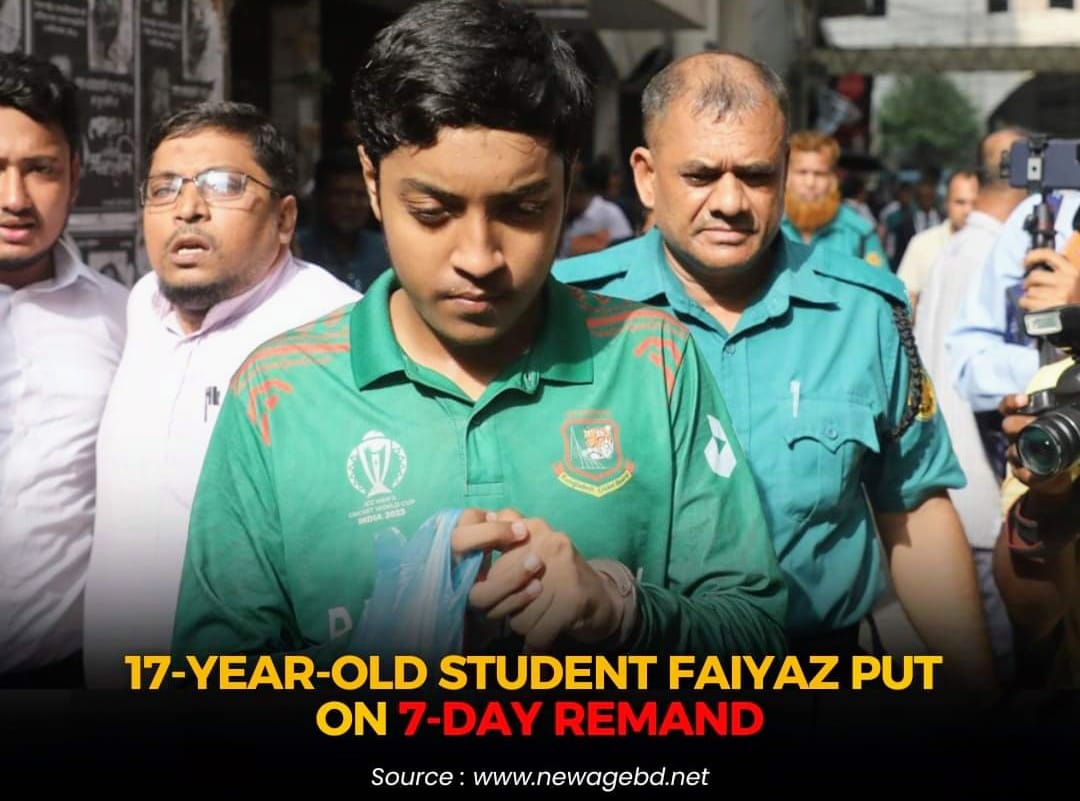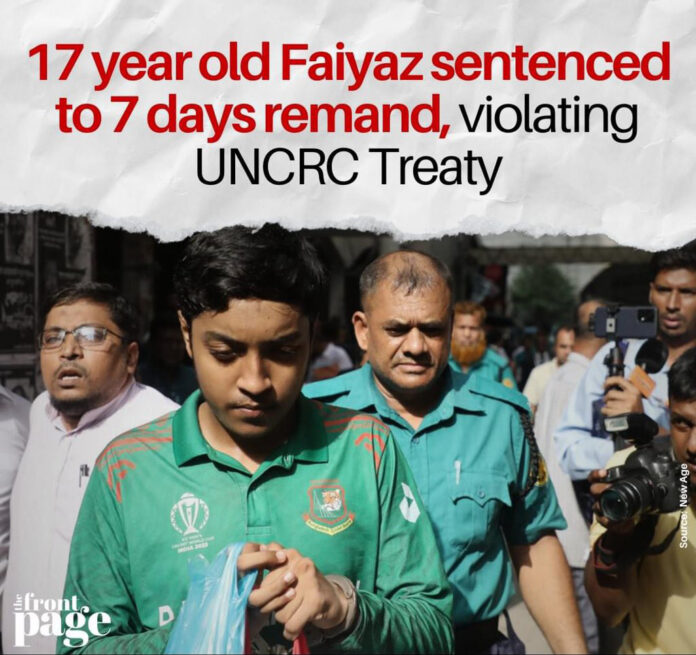Bangladesh Government Places 17-Year-Old Student Faiyaz on Seven-Day Remand Following Dhaka Protests
In a significant and controversial move, the Bangladeshi government has placed a 17-year-old student named Faiyaz on a seven-day remand following recent protests in Dhaka. This decision has drawn widespread criticism and intensified discussions on the handling of young protestors by the authorities.
Faiyaz, a high school student, was arrested amid escalating demonstrations in the capital city. The protests, led largely by the youth, have been focused on demanding better governance, transparency, and the safeguarding of human rights. These demonstrations have highlighted the growing dissatisfaction among the younger population with the current administration.

Arrest and Legal Actions
Faiyaz was taken into custody during a particularly heated confrontation between protestors and law enforcement. The clashes saw the police deploying tear gas and water cannons in an effort to disperse the crowds. Despite these measures, the protests continued, resulting in numerous arrests, including that of Faiyaz.
Subsequently, Faiyaz was presented in court, where it was decided to place him on a seven-day remand. This remand period is intended for a thorough investigation into his participation in the protests and any related activities that may have contravened the law.
Public Outcry and Reactions
The decision to remand Faiyaz has provoked a strong backlash from various sectors of society, including human rights organizations, community groups, and fellow students. Social media has been abuzz with calls for Faiyaz’s release, with numerous online campaigns and hashtags highlighting the case. The incident has spurred a wider debate on the treatment of young protestors and the implications for civil liberties in Bangladesh.
Human rights advocates have condemned the government’s actions, asserting that the remand of a minor for participating in peaceful protests is a severe overreach. A spokesperson for a local human rights organization stated, “The arrest and remand of a 17-year-old student for peaceful protest is deeply concerning. It raises serious issues about the protection of minors and their right to peaceful assembly.”

Continued Protests and Future Ramifications
Despite the remand of Faiyaz, the protests in Dhaka continue unabated. Protestors are adamant in their demands for the release of all detained individuals and for the government to address their concerns. The atmosphere remains tense, with fears of further clashes between demonstrators and police in the coming days.
The case of Faiyaz has become a symbol of the broader struggle between the youthful protest movement and the government. It underscores a pivotal moment for the country, with young citizens increasingly vocal and active in their demands for change and accountability.
The next week will be critical in determining the direction of the protests and the government’s response. Faiyaz’s situation will be closely monitored by both supporters and critics, as it may set a significant precedent for how the government deals with youthful dissent in the future.




